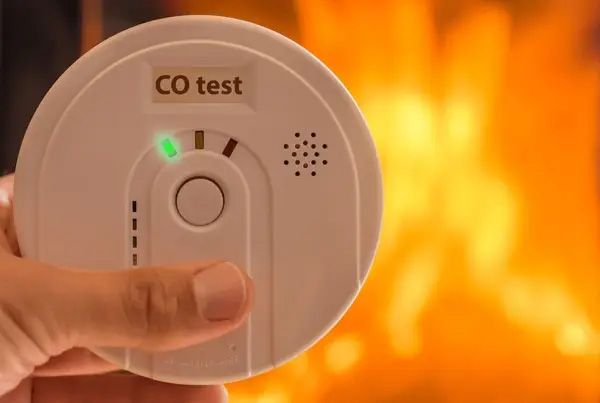How Do You Know if There Is Carbon Monoxide?
Carbon monoxide is an area of risk management that has been the focus of new laws in many states. Currently, at least twenty-five (25) states have legislation on carbon monoxide detector requirements. State laws vary in their specifics, and federal agencies are working on legislation encouraging all states to require carbon dioxide detectors in homes.
Why Carbon Monoxide Occurs
There are over 500 reported deaths and over 10,000 cases of carbon monoxide poisoning each year in the United States. Therefore, states must take regulatory action. Carbon monoxide legislation will protect owners from more liability—as well as from potential tragedy.
What is Carbon Monoxide?
Carbon monoxide (CO) is often called the "silent killer" because it is a colorless and odorless gas. It forms when carbon-based fuels, such as propane, charcoal, or wood burn with inadequate amounts of oxygen, creating a condition known as incomplete combustion.
Early symptoms can be nausea, headache, dizziness, and flu-like symptoms. However, most of the time, it is not detected, and death can occur without any noticeable warning. It is one of the leading causes of accidental death in the United States and one that is preventable.
Where Does Carbon Monoxide Come From?
Carbon monoxide can stem from faulty fireplaces, water heaters, gas appliances, space heaters, charcoal-burning devices inside buildings, running car engines in an enclosed garage, and more.
Preventing Carbon Monoxide
Installing an inexpensive battery-operated carbon monoxide detector that meets the requirements of the current UL standard 2034 or the IAS 6-96 standard, which can detect the gas and emit an alarm, is the easiest way of exposing this deadly gas. However, certain states are now requiring hard-wired detectors. There are also combination detectors for both smoke and carbon monoxide available.
However, relying on a CO detector is not the only solution.
Owners can take preventative measures such as ensuring gas dryers and other gas appliances are well-ventilated to the outside and checking fireplaces for proper operation. It is essential for residents to avoid using charcoal devices or camping equipment inside or leaving their car running inside a garage and to notify the gas company if they detect any indication of a gas smell.
As more deaths occur, more legislation is to be expected. Meanwhile, the answer to the "silent killer" is prevention. You should check carbon monoxide legislation and specific state requirements. You can research carbon monoxide using the United States Environmental Protection Agency's website.
As an investor, we want you to be aware of what can affect your investment. Our property management company is always prepared to keep up with state and local legislation, oversee important maintenance, and educate tenants whenever possible to protect your investment.


